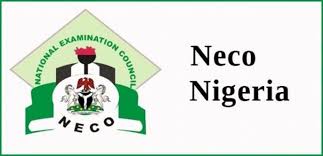Irish Ambassador to Nigeria, Peter Ryan, has commended the Hydrocarbon Pollution Remediation Project (HYPREP) for its people-centered approach to environmental remediation in Ogoniland, Rivers State.
The ambassador’s praise came during a visit to HYPREP’s Port Harcourt office, where he explored potential collaborative opportunities with the project.
In alignment with President Bola Ahmed Tinubu’s Renewed Hope Agenda—particularly Priority 3, Deliverable 3, which focuses on environmental sustainability and improving the quality of life for Nigerians—the Hydrocarbon Pollution Remediation Project (HYPREP) has received international commendation for its community-driven development in Ogoniland.
The Irish Ambassador to Nigeria, His Excellency Peter Ryan, during a working visit to HYPREP’s Project Coordination Office (PCO) in Port Harcourt, lauded the agency for what he described as a “people-focused” initiative that is transforming lives through land remediation, restoration of livelihoods, and environmental sustainability.
“The remediation of contaminated lands and the restoration of livelihoods by HYPREP is a multi-generational effort,” Ambassador Ryan noted. “This project is all about the people. I am deeply impressed by the commitment of Prof. Nenibarini Zabbey and his team, who are clearly motivated and deeply rooted in the community’s interest.”
He emphasized that for projects like HYPREP to be truly impactful, they must be owned by the communities they serve. Commending the progress made so far, Ambassador Ryan expressed Ireland’s willingness to partner with HYPREP, particularly in the areas of research and education, through the Centre of Excellence for Environmental Restoration (CEER).
“This is a great opportunity to build collaboration with Ireland. It makes perfect sense to be part of this journey together,” he added.
In response, Professor Nenibarini Zabbey, Project Coordinator of HYPREP, expressed appreciation for the ambassador’s visit and reiterated the project’s commitment to transparency, sustainability, and partnerships that align with the United Nations Sustainable Development Goals (SDG 17 – Partnerships for the Goals).
Prof. Zabbey highlighted some of the ongoing and completed projects across Ogoniland, including the Centre of Excellence for Environmental Restoration, shoreline and land remediation, potable water supply, construction of the Ogoni Specialist Hospital and Buan Cottage Hospital, mangrove restoration, the Ogoni Power Project, human capacity development and alternative livelihood programmes.
He also disclosed plans to contribute to the Federal Government’s National Food Security initiative by launching phytoremediation, biotechnology research, and agro-based training targeted at Ogoni youths and women. In addition, he said that HYPREP has commenced a feasibility study for the establishment of an agro-hub that will create green jobs and promote climate-smart agriculture in the region.
According to Prof. Zabbey, HYPREP’s work reflects the Renewed Hope Agenda’s focus on inclusive development, community empowerment, and environmental justice. “We see ourselves as carriers of hope—for the Ogoni people, the Niger Delta, and Nigeria at large,” he said.
“Little wonder a project with such significant local, national, and global relevance is attracting widespread attention and building new partnerships focused on making Ogoniland a benchmark for environmental restoration and sustainable development.”















